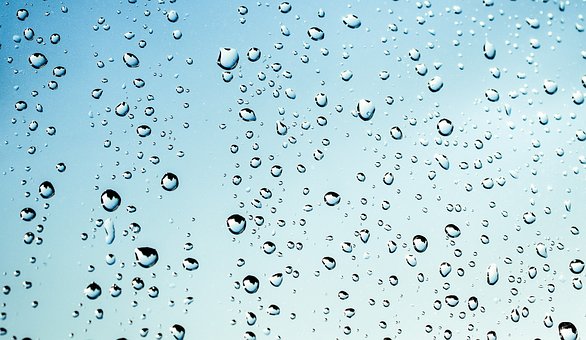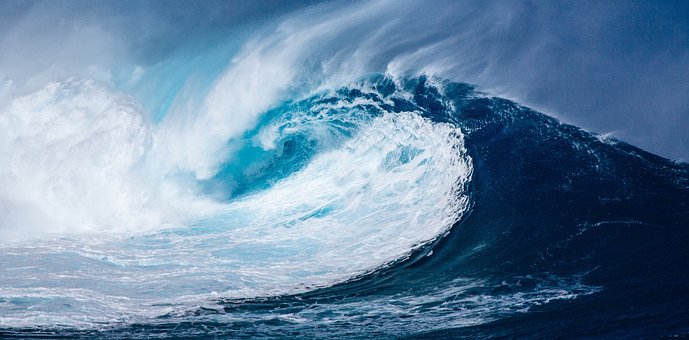All 2nd Grade Science Resources
Example Questions
Example Question #2 : Observe Animals To Compare Diversity In Various Habitats
Which environmental factor could cause an animal population to be less diverse?
Little rainfall
All of the answer choices are correct
Freezing temperatures
No plants
All of the answer choices are correct
All of these environmental factors could cause an animal population to be less diverse. If an animal is not adapted to freezing weather or very little rainfall, they will not have the necessary structures or characteristics to survive. If the animal is an herbivore and there are no plants present, the animal will starve. These are all factors that could limit an animal population.
Example Question #3 : Observe Animals To Compare Diversity In Various Habitats
How does the diversity of animals compare among different habitats?
Depending on the conditions in a habitat the animals may vary.
Humans do not know about animal diversity, and it cannot be studied in different habitats.
The same animals live in each habitat because they all have similar conditions.
There is no way to compare the diversity of animals in various habitats.
Depending on the conditions in a habitat the animals may vary.
Each habitat is very different and has animals that are suited to living in that specific environment. The species vary significantly from place to place, as do the number of animals. There are 228,450 known animal species in the ocean, nearly 6,000 animal species in Australia, and almost 1,000 different species in the Florida Everglades alone. Just these three places show such a variance in animal diversity. Depending on the conditions in each environment, the animals will vary.
Example Question #1 : Explain How Water On Earth Can Be Solid Or Liquid
Water exists as solid ice and in liquid form.
False
True
True
The statement is true; water can be found on Earth in solid and liquid form. Water can be found on Earth in a solid form in cold areas as ice. Water can be found in a liquid form in places such as ponds, oceans, rivers, and more.
Example Question #1 : Earth And Space Science
Why is water on Earth in both the solid and liquid state?
Water can be a solid or liquid state, depending on what humans are doing to it. Nature cannot control water, only humans.
Water on Earth is only in a liquid form and cannot be found in a solid-state.
Water on Earth is neither a liquid nor a solid. It can only be a gas.
Water can be a solid or liquid depending on the temperature and conditions of its location.
Water can be a solid or liquid depending on the temperature and conditions of its location.
Water on Earth can be found in both the liquid and solid states depending on the temperature and conditions of the environment it is in. In a hot place like the desert, water will not be found in a solid form as ice; it would be a liquid. In somewhere that is below freezing, one would likely see frozen water known as ice. In conditions such as a thunderstorm, both liquid and solid ice can be found it there is rain and hail.
Example Question #2 : Explain How Water On Earth Can Be Solid Or Liquid
Which photo represents water in a liquid form?





Water on Earth can be found in both liquid and solid states. Three of the photographs show water in the solid form - the mountain is covered in snow, which is solid, the ice cubes and icicles are frozen water. The only photo that demonstrates water in a liquid form is the drops on the window.
Example Question #3 : Explain How Water On Earth Can Be Solid Or Liquid
How could water be changed from its liquid form on Earth to a solid form?
It cannot be turned from a liquid to a solid.
It could be melted.
It could be buried.
It could be frozen.
It could be frozen.
Water can be changed from a liquid to a solid by freezing it. Many times ponds and lakes become frozen over when temperatures drop, and the liquid water is turned to ice. In the wintertime in many places, instead of rain falling from the clouds, we see snow because the temperatures are freezing and the water freezes.
Example Question #1 : Explain How Water On Earth Can Be Solid Or Liquid
Kaitlyn is looking to match different forms of water to images for a project. Which photo shows water in a solid form?





Water can be found in a liquid or solid state on Earth. The photo that represents a solid-state of matter is the ice and glaciers. These are large bodies of frozen water. The waterfall, ocean wave, and bottled water are all in a liquid form.
Example Question #1 : Explain How Water On Earth Can Be Solid Or Liquid
Which answer choice is an example of solid and liquid water on Earth?
Solid - hail
Liquid - rain
Solid - waterfall
Liquid - rain
Solid - snow
Liquid - hail
Solid - rain
Liquid - waterfall
Solid - hail
Liquid - rain
Earth has both liquid and solid water present. An example of how both of these forms can be found on Earth is that hail is solid, and rain is a liquid. They are both water but just in different forms. Students will learn about other forms of water and how they change in upper grade-levels.
Example Question #1 : Liquid And Solid States Of Water
How could water be changed from its solid form on Earth to a liquid form?
It cannot be turned from a solid to a liquid.
It could be buried.
It could be melted.
It could be frozen.
It could be melted.
Water can be changed from a solid to a liquid by melting it. Many times ponds or lakes are frozen in the winter when the temperature is low, the water is solid, and has turned to ice. In the spring, the temperatures start to rise in many places, and the frozen water melts back into its liquid state. Other places in the world may still be cold, and water remains froze. This is how solid and liquid water can exist at the same time in different areas.
Example Question #8 : Explain How Water On Earth Can Be Solid Or Liquid
Water only exists in solid states when it is warm.
False
True
False
The statement is false; water can be found on Earth in solid AND liquid form. Water can be found on Earth in a solid form in cold areas as ice. Water can be found in a liquid form in places such as ponds, oceans, rivers, and more. When water is located in a solid-state, it would be in cold temperatures.
All 2nd Grade Science Resources




